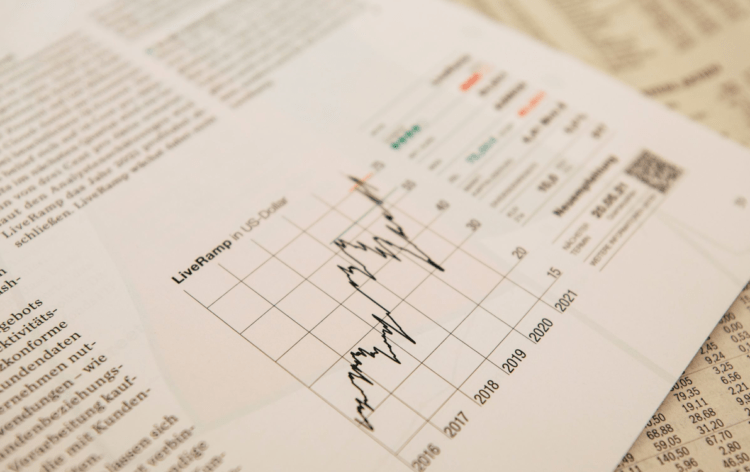Investing Across Borders: Assessing the Prospects of European and U.S. Markets

In today’s interconnected world, international trading has emerged as a cornerstone of global economic growth and prosperity. The worthiness of international trading transcends borders, uniting nations through the exchange of goods, services, and ideas. As companies extend their operations beyond their home markets, they access a wide array of possibilities, encouraging creativity and enhancing competitiveness. By facilitating the efficient allocation of resources, international trading bolsters economic efficiency, lifting nations out of poverty and paving the way for sustainable development. Moreover, the exchange of diverse cultures and perspectives promotes understanding and cooperation, forging strong bonds that underpin a more inclusive and harmonious global community.
International European Trading Market – The Main Aspects to Know
The European international trading market stands as a beacon of economic strength and stability, captivating investors and businesses alike. Its well-established infrastructure, coupled with a history of reliable regulations, makes it an attractive destination for global trade. European countries boast a diverse range of industries and advanced technology, creating a fertile ground for cross-border partnerships and collaborations. This market’s prominence is further bolstered by the European Union (EU), which facilitates seamless trade among its member states, eliminating trade barriers and ensuring a smooth flow of goods and services.
One of the key trends in the European trading markets is the surge in e-commerce and digital trade. With the advancement of technology and the growing preference for online shopping, businesses have been quick to capitalize on the vast consumer base within the EU. Cross-border e-commerce has flourished, allowing companies to reach customers in multiple countries without the need for a physical presence. This trend has opened up new opportunities for startups and small businesses, leveling the playing field and fostering innovation in the region.
Stability remains a hallmark of the European trading markets, despite occasional economic fluctuations. The euro, as the common currency for a significant number of EU member states, provides stability and confidence to investors and traders. Additionally, the EU’s commitment to maintaining open trade policies and resolving disputes through a structured framework ensures a sense of security for businesses engaging in cross-border transactions.
The European trading market’s reputation is built upon a foundation of trust, transparency, and adherence to high-quality standards. European products are often associated with exceptional quality and safety, which further boosts consumer confidence and elevates the region’s standing in the global marketplace. Consequently, businesses worldwide actively seek to establish partnerships with European suppliers to enhance their own reputation and market presence.
Furthermore, the prospects for international trading in the European markets remain promising. The EU’s ongoing efforts to expand trade relations with other regions through various trade agreements, such as the Comprehensive Economic and Trade Agreement (CETA) with Canada, provide avenues for businesses to access new markets and diversify their customer base.
For example, consider a tech startup based in the United States aiming to expand globally. By leveraging the stable and well-connected European trading markets, the company can easily distribute its products to customers across multiple EU countries, while also tapping into the growing demand for digital services in the region.
In conclusion, the European international trading market offers a compelling proposition for businesses worldwide. Its solid infrastructure, regulatory stability, and positive reputation make it an alluring hub for trade and investment. With continuous trends in e-commerce and digital trade, combined with the EU’s commitment to open trade policies, the European markets present a promising landscape of opportunities for businesses seeking to grow and thrive in the global arena.
Is This Market Worth Investing?
In the current market landscape, some investors are considering reducing their international exposure and favoring domestic investments due to several key factors. According to statements made by Kim Arthur, the CEO of Main Management, the performance of global stocks in relation to U.S. stocks is notably impacted by the strength of the U.S. dollar. Over the past decade, the dollar has been on an upward trajectory, resulting in underperformance for international equities. However, recently, the U.S. dollar index hit a 15-month low, suggesting a potential shift in the trend.
Arthur believes that the U.S. dollar is likely to continue weakening, presenting a challenging environment for global markets. In his capacity as the leader of Bank of America’s institutional sales and trading department, he highlights that the U.S. economy’s relatively lower inflation rates and higher interest rates give it a competitive advantage over other economies worldwide. This difference in economic conditions could lead to a scenario where the U.S. would start cutting rates before other countries, consequently strengthening the dollar again in the future.
A different viewpoint is brought forth by Mike Akins, one of the founding partners of ETF Action, emphasizing the significant demand from investors for U.S. mega-cap technology stocks. This preference for U.S. stocks has resulted in a significant flow of funds into domestic markets, leaving the international marketplace with limited investment. Companies like Microsoft, Apple, Amazon, Tesla, and Google (Alphabet) have played a pivotal role in driving multiple expansion for the broader S&P 500 due to their substantial market share.
As a result of these factors, international stocks have faced headwinds, while the S&P 500 has recorded notable gains. As an example, the iShares MSCI Emerging Markets ETF, which represents equities from emerging markets, experienced an 8% rise this year, in contrast to the impressive 17% surge observed in the S&P 500 index.
While the international market may currently face challenges, the situation is dynamic and can change based on various economic and geopolitical developments. Before making any choices regarding their international investments versus domestic ones, investors should thoroughly evaluate their risk tolerance and long-term investment objectives. As market conditions evolve, there may be opportunities for international markets to recover and regain their appeal, making a balanced and diversified approach essential in navigating the complexities of the global investment landscape.


























Comments (0 comment(s))